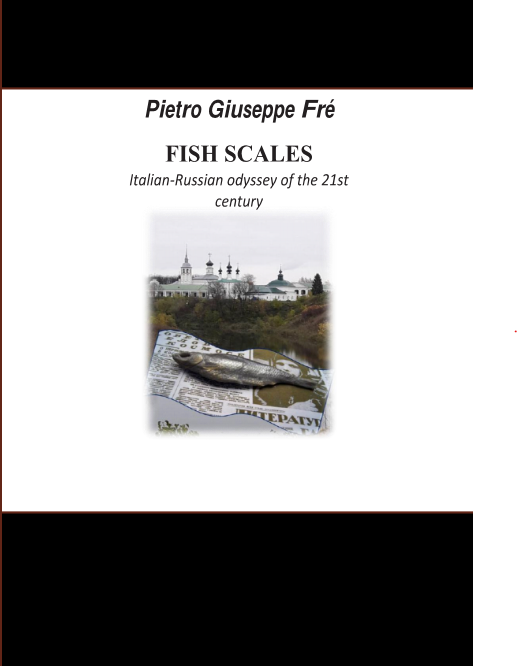
The Editing of the English version is still in progress, but soon it will be finished
A self publication of the author on LULU is planned
Twenty years Odysseus wandered the world, before returning to his Ithaca.
Almost two decades has wandered Arthur's heart between the West and Rus' in search of himself and of a difficult reconciliation between the nostalgia of a past, rich in certainties and the seductions of an enigmatic and uncertain present.
A little more than two decades have passed since the dawn of a new Russia that does not know the landfall of its Ithaca and sinks now into its past that does not pass. It swings over the great plains, as it always has done, the pendulum of History between Europe and Asia and sweeps over, heedless and mocking, individual existences.
A symbol, since the early Christian age, of the Savior, in everyday reality the fish can foul the air with the stench of its rotten flesh. In vain does a good Fisherman sometimes try to draw us to the shore of our Ithaca; mostly we dry up first, for we are all fish scales.
Moscow, October 2016
Author's Preface
No. This is not a book for those who communicate only with twitter, or facebook.
Reading Fish Scales is like riding the comet of life and, if one has been lucky and deserving, that of one's own experience. A journey where reality (places and people of Russia) is intertwined with fantasy, concrete emotions and lived experiences, combined with projections of futuristic socio-economic scenarios.
With the MX16 supertrain, we are in a future (not too far off, maybe we will make it to see its beginnings) with its new rigid, inexorable laws of sustainable equilibrium (how timely!).
But in the end, with the imposition given to the protagonist to return to his first wife, the author reminds us that we all seek, as the poet Evtuschenko said, our love archetypes.
Pietro Fré, a scientist projected with his research light years ahead of us mere mortals, does not forget that he is profoundly human, with his great emotions; the desire to live and to love and, of course, also to know how to pay for all these privileges with the corresponding sufferings and disappointments.
Late Prof. Solimene's Introduction
A scientist but also a poet, he gives us very beautiful pages such as the description, which reminds me of Homer's verses, of pink porphyry sunrises. Arthur, the Fisherman, and vobla (the dried river fish that, consumed together with a good beer, is beloved by Russians) are allegories representing the Author, his consciousness, and the mystery of the magical Russian soul. Not surprisingly, Fré wrote an essay entitled Russkaya Dushà (Russian Soul). The memory of the Father with whom, as with all of us, too little was spoken when he was alive (posthumous conversations); the encounters, so well described and set in geographic locations (especially for those with experience of living in Moscow); the opportunities lost and opportunities realized (Pokrovsky Bulvar) make us experience the Russian world in its varied nuances. Some recalls (Dom Uchenikh) also remind us who the Author is in his real life (Scientific Attaché), but also, as through small life portraits, we have the possibility of witnessing episodes of collective socialization (typical at the end of Russian banquets). But the Fisherman always hovers, like a talking cricket or like the remember you are man of Roman triumphal ceremonies. The women in Fish Scales, Nadezhda, Svetlana, Irina, Sarah, etc., are romantic, sometimes naive, sometimes calculating, but all have a strong earthy sensuality that captivates, and they win over Arthur, also a man of strong temperament. Fish Scales is not just a diary collecting the notes of eight years spent intensely in Russia, from the privileged observatory of his own soul. It does not have the spirit of farewell. In fact, it is the synthesis of a long experience of inner life, beginning in adolescence and continuously unfolding, searching, as we should all try to do, for our own vobla. But not all of us are fortunate enough to have the Fisherman near us.
Thank you, Pietro.
Umberto Solimene



